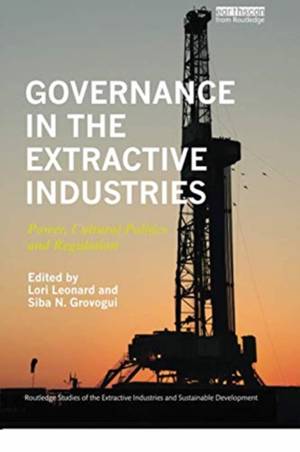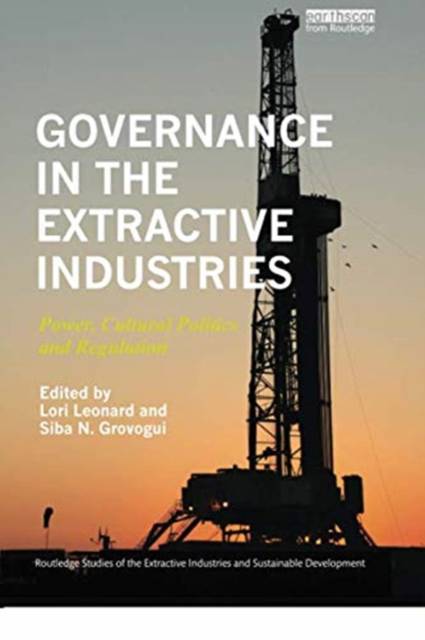
- Retrait gratuit dans votre magasin Club
- 7.000.000 titres dans notre catalogue
- Payer en toute sécurité
- Toujours un magasin près de chez vous
- Retrait gratuit dans votre magasin Club
- 7.000.0000 titres dans notre catalogue
- Payer en toute sécurité
- Toujours un magasin près de chez vous
Governance in the Extractive Industries
Power, Cultural Politics and Regulation
Description
Greater understanding of the forms and consequences of investment and disinvestment in the extractive industries is required as a result of capitalist expansion, recent declines in global commodity prices, and claims that extractive sector projects, especially in the global south, are poverty reduction projects. This book explores emergent forms of governance in mining and extractive industry projects around the world.
Chapters examine efforts to govern extractive activities across multiple political scales, through intermediaries, instruments, technologies, discourses, and infrastructures. The contributions analyse how multiple micro-processes of rule reverberate through societies to shape the material conditions of everyday life but also politics, social relations, and subjectivities in extractive economies. Detailed case studies are included from Africa (Chad, Nigeria, Rwanda, and São Tomé and Príncipe), Latin America (Bolivia, Ecuador, and Peru), and the UN Climate Conference.
Spécifications
Parties prenantes
- Editeur:
Contenu
- Nombre de pages :
- 224
- Langue:
- Anglais
- Collection :
Caractéristiques
- EAN:
- 9780367351373
- Date de parution :
- 08-08-19
- Format:
- Livre broché
- Format numérique:
- Trade paperback (VS)
- Dimensions :
- 155 mm x 249 mm
- Poids :
- 362 g

Les avis
Nous publions uniquement les avis qui respectent les conditions requises. Consultez nos conditions pour les avis.





